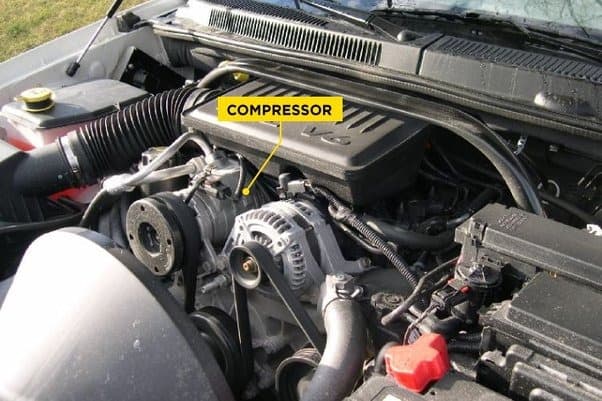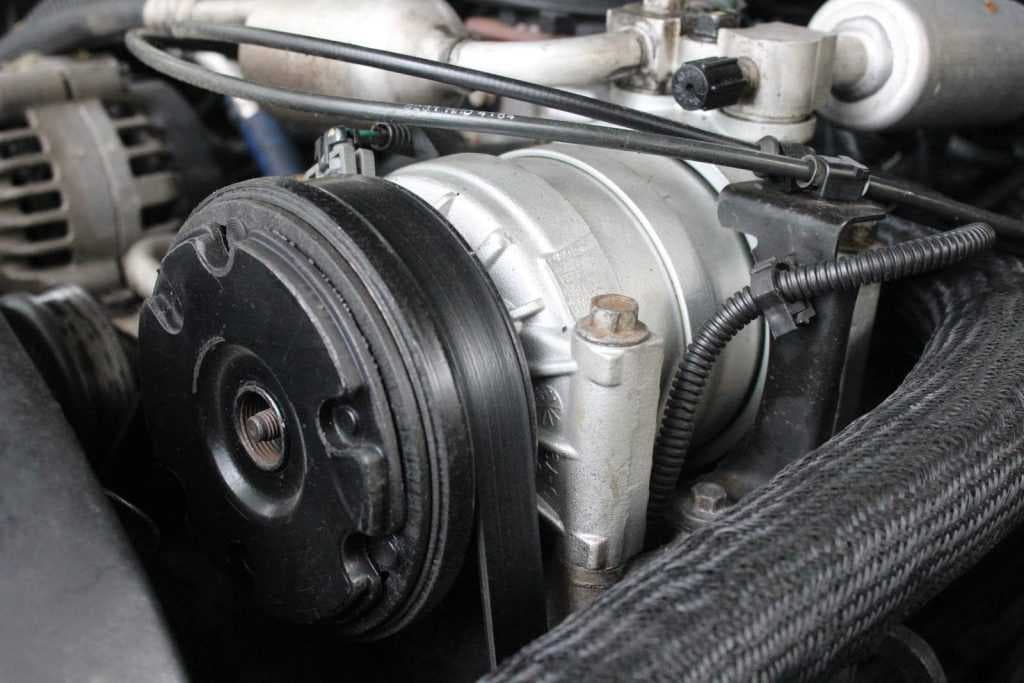If your AC compressor keeps turning on and off, it could be due to a few different factors. In this blog post, we’ll explore some of the possible reasons why this might be happening and what you can do about it. Stay tuned for more tips and advice from our HVAC experts!
Table of Contents
- The compressor is the heart of the AC system
- The compressor turns on and off to maintain proper pressure
- If the compressor turns on and off too frequently, it can be a sign of a problem
- There are several potential causes for this problem, including low refrigerant levels, a dirty condenser coil, or a faulty relay switch
- You should have a qualified technician check your AC system if you notice this issue
- Conclusion
- FAQs about AC compressor that turns on and off
Home » Why Does My AC Compressor Keep Turning On and Off?
The compressor is the heart of the AC system
The compressor is something of a cornerstone in the AC system. Fundamentally, it serves to compress refrigerant into liquid form before releasing it through the condenser coils. It is responsible for transferring heat and pressure from one part of the electrical circuit to another. This process effectively cools the air, ready to be circulated into your home.
Without a working compressor, your air conditioner would not be able to do its job properly and you would have neither hot nor cold air to pipe through your residence. Put plainly, it is the heart of the AC system, ensuring that your cooling functions with optimum efficiency every time you switch it on.
The compressor turns on and off to maintain proper pressure
The compressor is a key component in many systems; its role is to maintain adequate pressure. To do this, it alternates between on and off cycles, allowing a consistent pressure to be held in the system. By operating in this manner, consequences such as imbalance or over-pressure can be avoided. Furthermore, it increases the efficiency of the system by avoiding putting more energy into a space than what is necessary. Achieving equilibrium has become vastly easier due to the ability for the compressor to continually regulate pressure levels.
If the compressor turns on and off too frequently, it can be a sign of a problem
When it comes to keeping any air conditioning system in good shape, one of the most important indicators of a potential problem is the consistency of its compressor. If the compressor found in an air conditioning unit is consistently turning on and off, this can be a sign that strides need to be made in order for its performance to improve.

Not only does such irregular behavior signal potential issues with temperature control but also suggest that power consumption could be higher than it ought to be if the problem is not addressed expediently. Moreover, neglecting such anomalies could potentially create larger problems down the line if left unattended.
There are several potential causes for this problem, including low refrigerant levels, a dirty condenser coil, or a faulty relay switch
Compressor cycling is a troublesome issue for many homeowners, as it can lead to higher electricity bills and an uncomfortable indoor environment – not to mention potential damage to the system. It indicates that the compressor turns on and off too frequently, which might be caused by a number of different factors.
Low refrigerant levels, a dirty condenser coil, or even a faulty relay switch could be the culprits behind this malfunctioning compressor. In any case, it is important to have a professional technician diagnose and repair the issue before further damage occurs.
You should have a qualified technician check your AC system if you notice this issue
Is your compressor turning on and off too frequently? It may be time to call in a qualified technician to inspect your AC system. The compressor is designed to keep running for a steady period of time, so if it’s switching on and off continuously, that could indicate an issue with the compressor or other components of the system.
There may even be problems such as improper air movement, inadequate cooling load, or refrigerant leakage. A qualified professional will be able to troubleshoot the issue and recommend an appropriate resolution. Don’t wait until peak summer temperatures hit to ensure your AC system is working properly! Get a checkup from an expert today.
Conclusion
If your compressor is turning on and off too frequently, it could be a sign of a problem. There are several potential causes for this issue, so it’s best to have a qualified technician check your AC system. By troubleshooting the problem and taking care of any necessary repairs, you can help ensure that your AC system runs smoothly all summer long.
FAQs about AC compressor that turns on and off
What could be causing my AC compressor to turn on and off?
The answer to the question of what could be causing an air conditioner compressor to turn on and off too frequently is typically attributed to a few different causes. Low refrigerant levels, a dirty condenser coil, or a faulty relay switch are all potential culprits behind this malfunctioning compressor.
Why is it a problem if my AC compressor keeps turning on and off?
Compressor cycling is a troublesome issue for many homeowners, as it can lead to higher electricity bills and an uncomfortable indoor environment – not to mention potential damage to the system. It indicates that the compressor turns on and off too frequently, which might be caused by a number of different factors.
How can I prevent my AC compressor from turning on and off?
There are a few things you can do to prevent your AC compressor from turning on and off too frequently. One is to ensure that the system is properly sized for your home. Another is to make sure that the coils are clean and that there is enough refrigerant in the system
What are the consequences of not fixing my AC compressor issue?
If an AC compressor issue is not addressed, the consequences can be severe. Over time, the strain from constant cycling can cause wear and tear on key components of the system, leading to reduced efficiency and reliability. Without proper maintenance, you could end up needing costly repairs or even a complete replacement of your air conditioning system.
Is it expensive to fix an AC compressor that keeps turning on and off?
The price of repairs can depend on the type of AC system you have–different types may require more or less work to troubleshoot and repair, so costs may vary.


